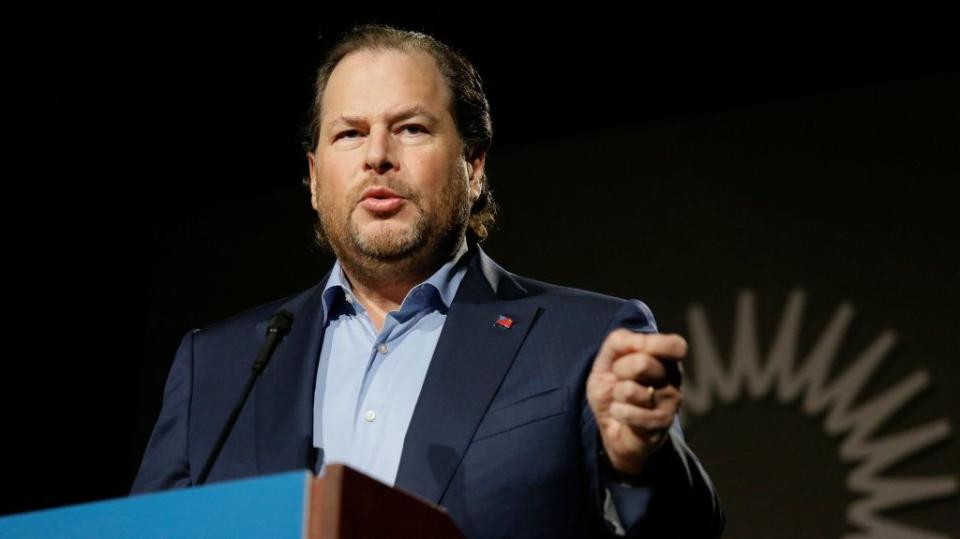The salary question Salesforce asks applicants to help stop pay gaps in their tracks

A lot of job-interview questions can be real bummers, from “What’s your greatest weakness?” to “Where do you see yourself in five years?” But among the most problematic is “What’s your current compensation?”—a query that perpetuates the gender pay gap and other forms of wage discrimination.
The question is so controversial that 13 US states, including California, Connecticut, Delaware, Hawaii, Massachusetts, and Oregon, as well as 11 US cities, have thus far banned government offices and/or private employers from asking about applicants’ pay histories.
Not requesting salary history is one step toward ending pay discrimination. But what should employers ask instead? One option comes from the cloud-software giant Salesforce, which released the results of its fourth annual, company-wide pay equity assessment on Equal Pay Day (April 2 in the US).
In a blog post about this year’s findings, Salesforce president chief people officer Cindy Robbins notes that rather than asking prospective employees about their salary history, the company asks, “What is the compensation you expect?”
Sure, as a California-based company, Salesforce was legally obligated to find a different way to talk about pay, but this phrasing also puts job applicants in a more empowered position, wherein they can negotiate for fair pay regardless of how their previous employers have valued them.
Salesforce chairman and CEO Marc Benioff has been outspoken on the subject of pay equality, having been forced to confront the ways his company fell short on equal-pay practices back in 2015. Salesforce spent $3 million to close the gender wage gaps it uncovered that year, and ponied up another $3 million in 2017 to address new pay discrepancies it had inherited from a series of acquisitions it had made.
So how did Salesforce fare this time around? The company reports that its latest pay assessment found that “5% of our 35,000 employees globally required adjustments. Of those who required adjustments, 39% were women, 54% were men, and 7% were due to race and ethnicity.” In other words, a greater portion of men were being underpaid. Salesforce reports that it spent $1.6 million to even out the disparities.
Salesforce isn’t the only big company to find that men were being paid less than women who held comparable roles in recent pay-equality surveys. In March, Google announced that its annual study of salaries revealed that, among one group of software engineers, men were more likely to be underpaid than women.
But as the New York Times notes, and Google itself acknowledged, the study paints an incomplete measure of equality in the workplace. Just as important as equal pay for equal work, for example, is ensuring that women are not being hired into lower-level positions than men with similar amounts of experience, and that women are being put up for promotions at comparable rates.
This story is part of How We’ll Win in 2019, a year-long exploration of the fight for gender equality. Read more stories here.
Sign up for the Quartz Daily Brief, our free daily newsletter with the world’s most important and interesting news.
More stories from Quartz:

 Yahoo Finance
Yahoo Finance 